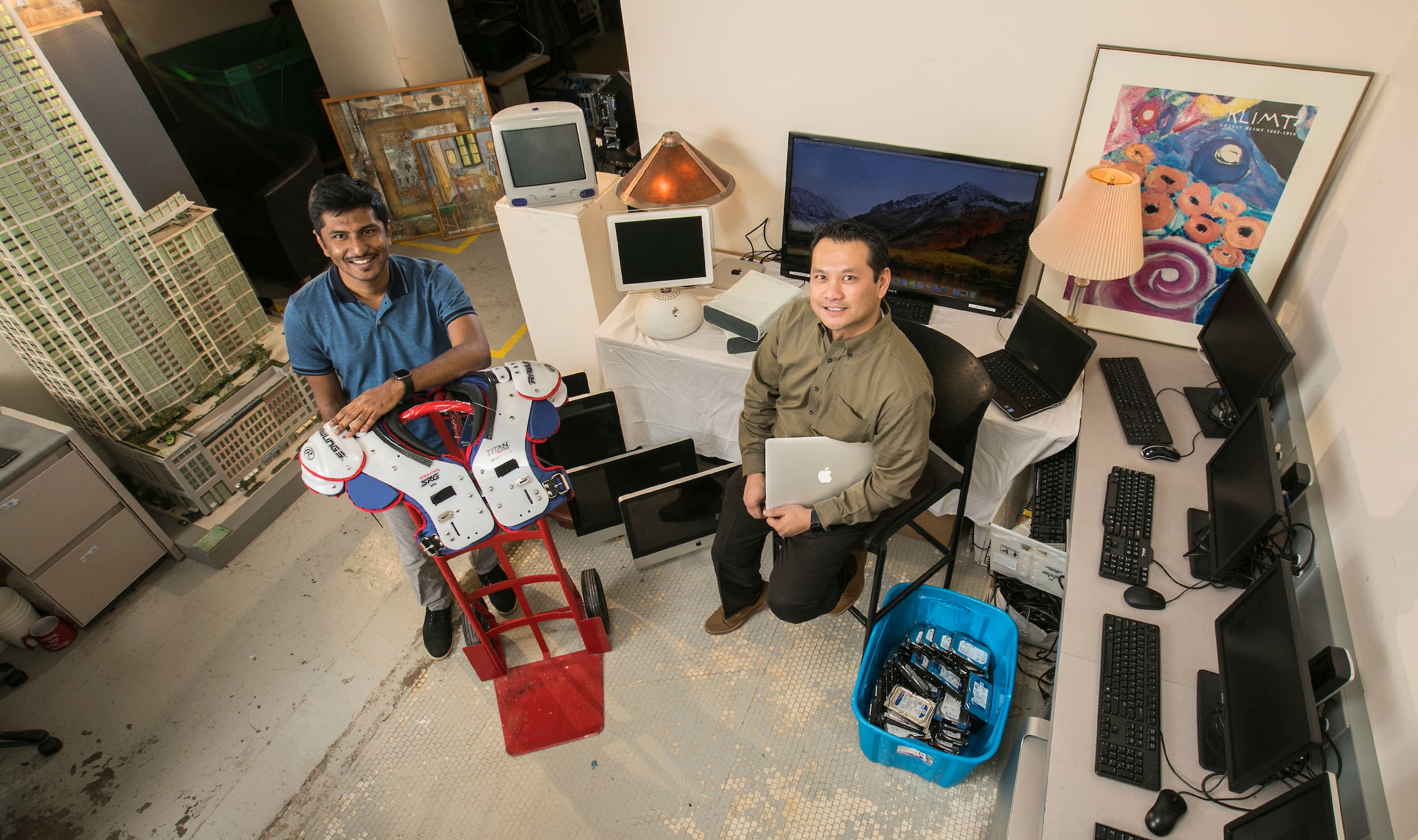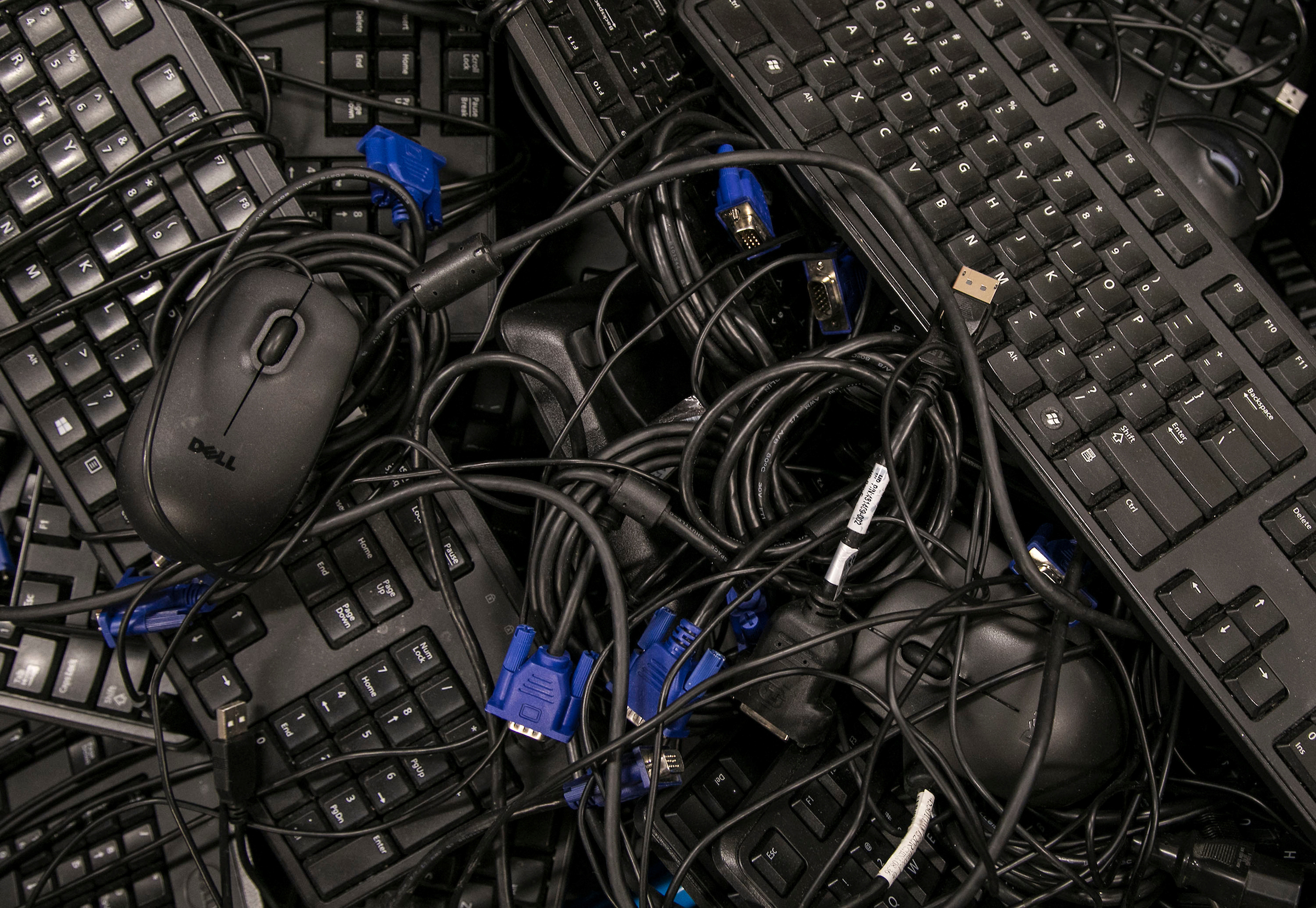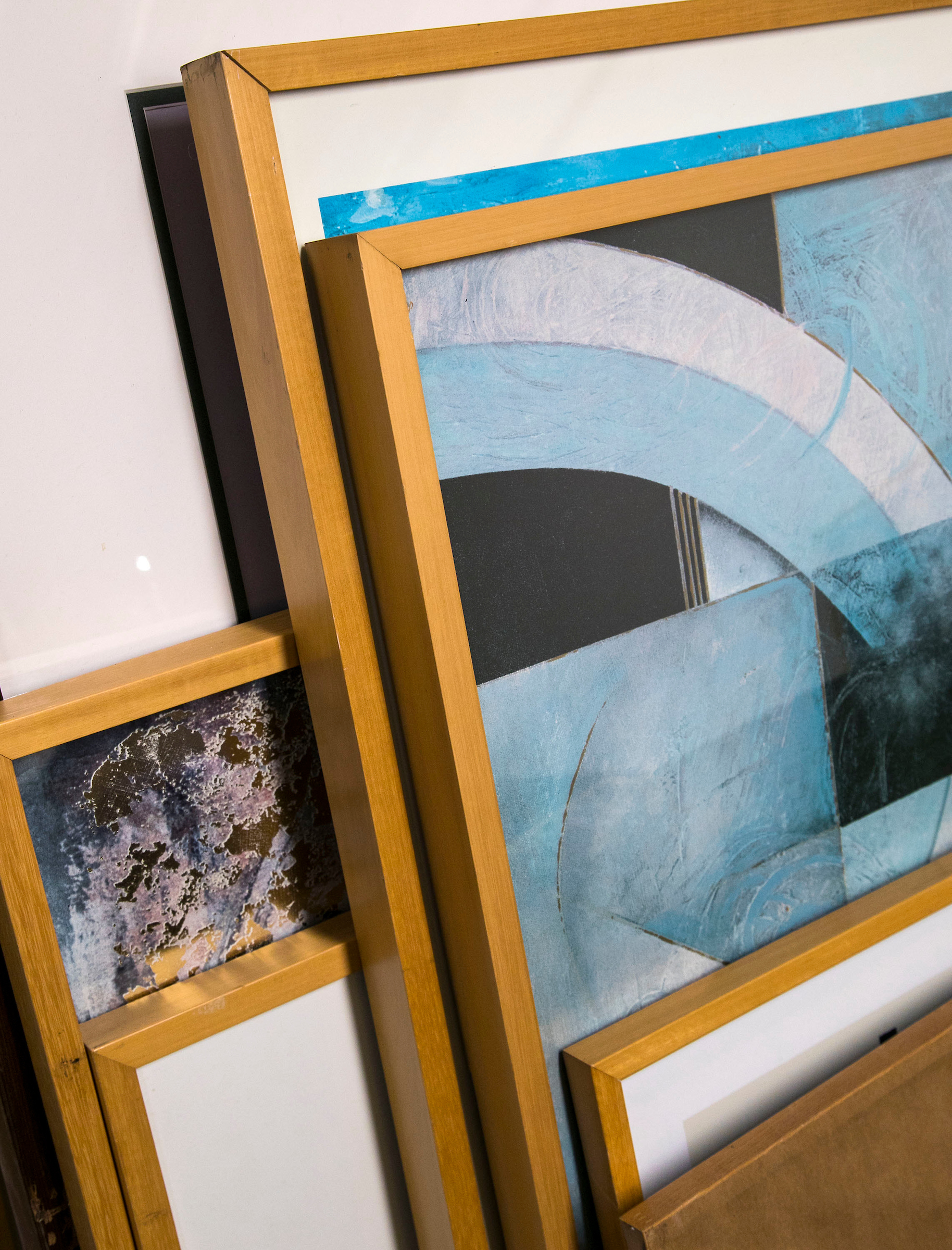 From artwork and hard drives, to football equipment and vintage computers, student worker Mohan Vegesna, left, and Eric Cruz, assistant procurement director, help sell, reallocate and recycle many of DePaul's surplus items at the University Salvage Store. (DePaul University/Jamie Moncrief)
From artwork and hard drives, to football equipment and vintage computers, student worker Mohan Vegesna, left, and Eric Cruz, assistant procurement director, help sell, reallocate and recycle many of DePaul's surplus items at the University Salvage Store. (DePaul University/Jamie Moncrief)
In the depths of the CDM building there's an unmarked door at the end of west hallway which opens to a room full of treasures. Rows and shelves and boxes of treasures acquired from across DePaul's campuses lie in wait to be cleaned, tested, posted and sold from the
University Salvage Store.
Since 2005, the Salvage Store has been collecting and reclaiming items that DePaul departments and offices no longer use or need. From lamps to laptops, appliances to artwork, or football pads to iPads, the Salvage Store offers these and many other items at significant savings to DePaul students, faculty, staff and the public at large.
The start of the Salvage Store
Eric Cruz, assistant director of procurement services, has overseen the Salvage Store for the last three years. He explains that about 13 years ago, Jeff Bromberek, director of Procurment Services, had the idea to develop the Salvage Store program. The idea evolved as an enterprising way to reuse, recycle and repurpose surplus furniture, computer equipment and office supplies that are still in working order. By selling the items at a discount price, customers can buy good items at quite a savings.
"On top of customers saving money, there are also savings to university departments. Departments in need of certain items can check out the Salvage Store website or call us with their wish list items. If the items are available, they can be reallocated to that department at no cost, thus saving units money as well," Cruz says. "We've seen an increase in reallocations to DePaul departments. The only thing that can't be reallocated are computers."
 From artwork and hard drives, to computer mice and keyboards, DePaul's University Salvage Store has a little of everything. (DePaul University/Jamie Moncrief)Getting ready to sell
From artwork and hard drives, to computer mice and keyboards, DePaul's University Salvage Store has a little of everything. (DePaul University/Jamie Moncrief)Getting ready to sell
With the amount of inventory that comes into the Salvage Store, it takes a lot of work to prepare the treasures to be sold. Every two weeks, movers pick up salvage requests in Lincoln Park and bring them to the Salvage Store storage room.
"The salvage room is a pretty big space. It's an organized mess," Cruz says. "But we know exactly what's in our inventory."
Cruz and his student worker, Mohan Vegesna, have a system in place that quickly moves the items through cleaning, inspection, testing, photos and web posting. They assess each item to decide what will get sold and at what comparable fair market price. Items that are broken or too old get recycled. Computer equipment gets erased with a data wipe tool provided by Information Services.
In addition to managing the Salvage Store, Cruz conducts various contract negotiations; works with existing vendors; assists budget managers with purchasing activity; and manages Demon Discounts which brings savings to the DePaul community.
You're selling what?
Hard drives and staplers aren't the only items for available from the Salvage Store. Among some of the more unconventional items for sale are about a dozen sets of football shoulder pads, a wall of aerobic exercise risers, a gallery of framed prints, a bundled set of dinner plates and an eight-foot illuminated architectural model of
The Heritage at Millennium Park building.
"We do acquire some unusual items if we think we have the potential to sell them," Cruz says. "I got a call from a department on the Lincoln Park Campus that had a piano they didn't need. They asked if I wanted it. I said yes right away." The Salvage Store eventually sold the piano to a non-DePaul customer.
 Photos, paintings, or just the frames - DePaul's University Salvage Store has items for sale or for reallocation. (DePaul University/Jamie Moncrief)
Photos, paintings, or just the frames - DePaul's University Salvage Store has items for sale or for reallocation. (DePaul University/Jamie Moncrief)
To boost sales, Cruz and his team set out to increase the Salvage Store's e-commerce profile. Among the strategies implemented: improving the website; marketing through social media; emailing subscribers; distributing brochures; establishing a Salvage Store presence at student orientations and at the Procurement Services vendor fair; and reaching out to local businesses and community organizations who might benefit from shopping at the University Salvage Store. They've also started to bundle items such as a computer, keyboard, and monitor to be sold as one unit, saving customers even more green.
"In the first years, the Salvage Store made about $20,000 in sales a year from items we would have never gotten anything for," Cruz says. "We've expanded the inventory and increased the store's visibility. Last year, the Salvage Store brought in more than $100,000 and we're on track to exceed that this year."
More savings to Blue Demons
To save more money, DePaul students, faculty, staff and alumni can take advantage of Demon Discounts. Also managed by Cruz, with the help of another student worker, the Demon Discounts savings program includes about 80 local vendors that offer discounts on dining, entertainment, health and beauty, technology, travel and transportation.